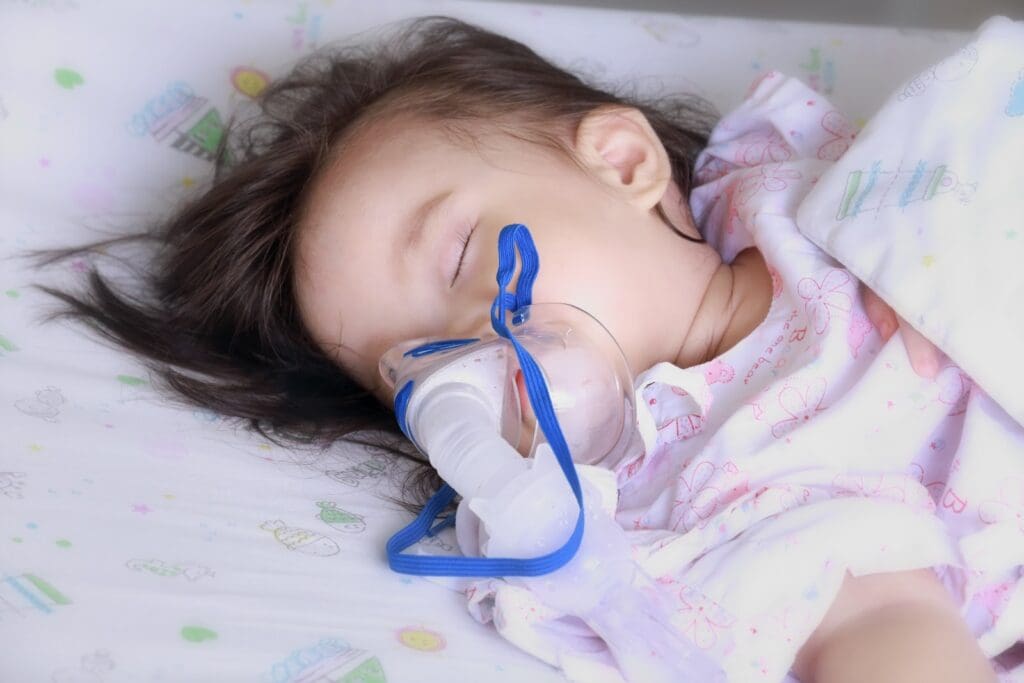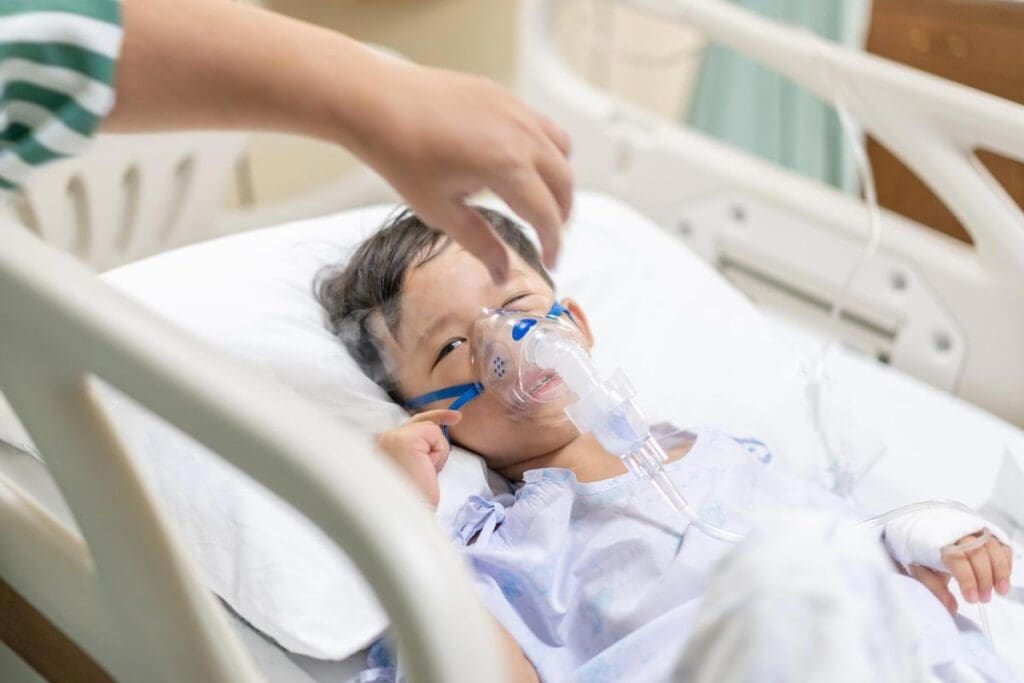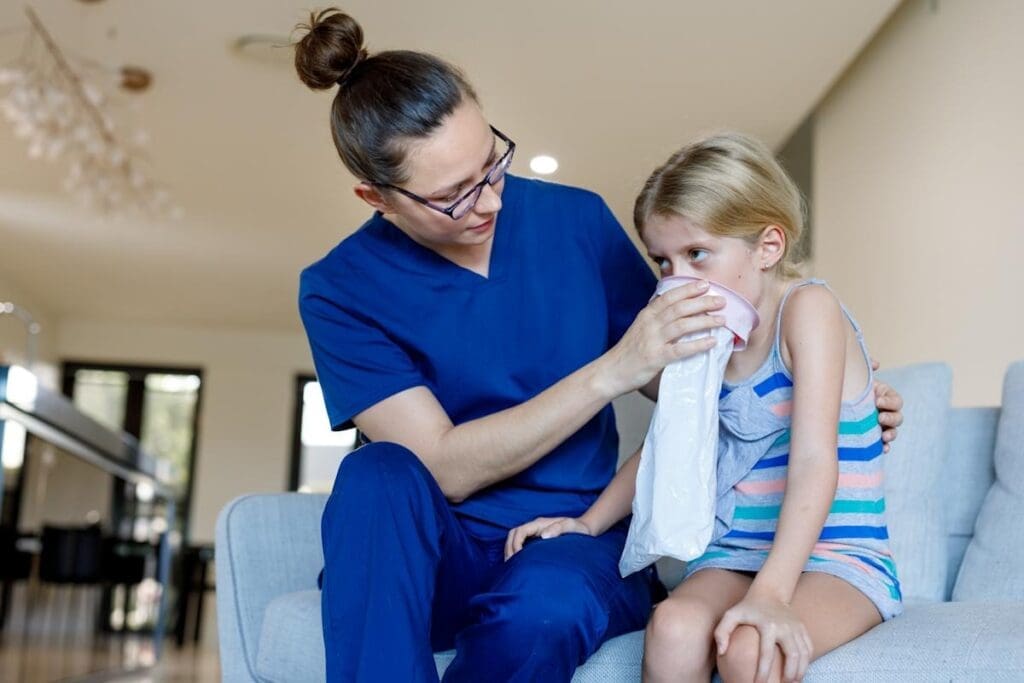Last Updated on November 24, 2025 by

When kids have surgery, they get general anesthesia to block pain. As a trusted healthcare provider, we know parents want to know what happens after surgery. Kids often feel different physically and emotionally after anesthesia. How will your kids feel after anesthesia? This essential parent’s guide prepares you for common reactions and ensures a smoother, stress-free recovery.
Anesthesia is a medicine that keeps kids from feeling pain during surgery. But, it can make both kids and parents feel uneasy. We are here to support you in understanding what happens after surgery.
At top hospitals like Liv Hospital, we offer safe and caring pediatric anesthesia. Our team is ready to give you all the help and advice you need.
Waking up from anesthesia is closely watched in children to help them recover smoothly. As they come out of general anesthesia, their awakening can differ a lot. We watch over children after surgery in the post-anesthesia care unit (PACU).

The first moments after anesthesia are very important. Children usually take 6 to 8 minutes to wake up fully. Our medical team keeps a close eye on their vital signs and overall health during this time.
Key observations during this phase include:
Children of different ages react to anesthesia in different ways. Younger kids, like infants, might take longer to wake up and need more careful watching. Older kids usually wake up faster, often in 6 to 8 minutes.
Age-specific responses include:
Knowing these differences helps us give the right care during recovery. By adjusting our care to the child’s age and needs, we make sure they have a safe and comfortable wake-up from anesthesia.
Children who have surgery may face several physical symptoms after. We work hard to lessen their discomfort and pain. This helps them feel better after their surgery.
Nausea and vomiting are common after surgery, affecting up to 42% of kids. Giving anti-nausea meds before, during, and after surgery helps a lot. We aim to make their recovery smoother.
Effective nausea management is key. We use anti-nausea meds and make sure kids stay hydrated and comfortable.

Sore throats and airway discomfort are common after surgery, often due to breathing tubes. We know these symptoms can upset kids. So, we take steps to help them feel better.
Offering comfort measures like ice pops or cold drinks can ease a sore throat. Sometimes, we need to use medicine to help with airway discomfort.
Dealing with pain in kids after surgery is tricky. Each child’s pain level and how they show pain is different. So, we tailor pain management to each child’s needs.
We use pain assessment tools and our best judgment to find the right pain plan. This might include meds or non-medical ways like distraction or comfort positioning.
After anesthesia, kids might feel sad or want lots of comfort. It’s normal and usually doesn’t last long. As a parent, knowing this can help you support your child better.
Children often feel sad or clingy after anesthesia. This is because they’re in a new place and might be uncomfortable or confused. Reassurance and comfort are very important during this time.
Parents can help by being there, giving familiar things, and speaking softly. It’s also good to be ready for your child’s feelings at home after surgery. Creating a calm and comforting environment can really help.
Keep things quiet, have their favorite things nearby, and be ready to reassure them. Remember, the anesthetic impact on children can differ. Some might get better fast, while others might take longer. Knowing this can help you support your child better.
Being informed and ready can make a big difference. It makes the recovery process easier for your child and the whole family.
The post-anesthesia care unit (PACU) is where children are closely monitored as they wake up from anesthesia. Our dedicated healthcare team watches over your child very closely as they recover. This period is key for ensuring your child’s safety and comfort as they come back to full consciousness.
For short surgical procedures, the typical monitoring period in the PACU usually lasts around 21 to 23 minutes. Our medical staff carefully observes your child’s vital signs, pain levels, and overall condition. We understand that every child is different, and the monitoring period may vary.
Before your child is discharged from the PACU, we ensure they meet specific criteria. They must be fully awake, have stable vital signs, and experience minimal pain or discomfort. Our team also checks if they can breathe properly and swallow without difficulty. Once these conditions are met, we can confidently discharge your child to continue their recovery in a more comfortable setting.
As a parent, you can usually join your child in the PACU once they are awake and stable. This is an opportunity for you to comfort your child and help them feel more secure as they recover. Our staff will keep you informed about your child’s condition and provide guidance on how to support their recovery at home. For more detailed information about the PACU process.
Infants have unique recovery patterns compared to older children. Their smaller size and developing physiology mean that they require specialized care in the PACU. Our experienced healthcare providers are trained to address the specific needs of infants, ensuring that they receive the appropriate level of care as they recover from anesthesia. We closely monitor their temperature, breathing, and overall comfort to ensure a safe and comfortable recovery.
Your child’s recovery from anesthesia is a journey you can help with. It’s key to care for them well after surgery. We’ll show you how to make your home a supportive place for your child.
Creating a cozy home environment is vital for a smooth recovery. Keep your home quiet and at a comfortable temperature. Help your child rest in a comfy spot, and use pillows for support if needed.
Most kids do well after surgery. Encourage them to drink clear fluids and try light meals like soup or crackers if they can. Let them know they’re safe and well. Your presence and reassurance are key to their recovery.
Even though most kids recover well, there are times to call your doctor. Watch your child closely and get medical help if they show signs of trouble, like too much vomiting, severe pain, or trouble breathing.
“The care you provide at home is just as important as the care your child receives in the hospital.”
Be ready to handle any pain or discomfort with the plan your healthcare team gave you. If your child has unexpected reactions or you’re worried, call your doctor.
By following these tips and staying in touch with your healthcare provider, you can greatly help your child recover. Remember, your role as a parent is very important in making this journey easier for your child.
It’s key for parents to understand how kids feel after general anesthesia. This knowledge helps in giving the best care during recovery. Children might feel nausea, sore throat, or be tearful after anesthesia.
Anesthesia is usually very safe, and most kids do fine. We stress the need for thorough pediatric post-op care. This ensures parents are well-informed and confident in their child’s care. If you have concerns, always talk to your healthcare provider.
Knowing what to expect and how to support your child can ease the recovery process. This makes it less stressful for your child and your family. We aim to offer top-notch healthcare with full international patient support and guidance.
After general anesthesia, kids might feel very sleepy, confused, or disoriented. The way they wake up can depend on their age and the surgery they had.
Kids might feel sick to their stomach, have a sore throat, or feel uncomfortable in their airways after surgery. We’ll help you understand how to manage these symptoms.
Kids might cry or want to be held after anesthesia. It’s important to be there for them and offer comfort to help them feel better.
For short procedures, kids usually stay for 21-23 minutes. We’ll explain what to expect when they go home and when it’s okay to leave the hospital.
Make sure your child has a quiet, cozy place to rest. We’ll give you tips on how to make their recovery space comfortable.
Infants have their own way of recovering. We’ll talk about what you can expect to help you understand their needs.
We’ll share ways to help your child feel less pain and discomfort. This will make their recovery easier.
If your child has more pain, is vomiting, or is having trouble breathing, call your doctor right away. They can help and give advice.
Subscribe to our e-newsletter to stay informed about the latest innovations in the world of health and exclusive offers!